• Bishops, regional groups, experts, others present basket of expectations to president, governors
Looking back at the first seven months of his stewardship since assumption of office on May 29, last year, President Bola Ahmed Tinubu, in his first New Year address to the nation, tried to give himself and his administration a pass mark for how he had steered the ship of state, in the face of the peculiar mess he inherited from the erstwhile Muhammadu Buhari administration.

However, in the past seven months the effects of the abrupt removal of the petrol subsidy has continued to be felt everyday by all and sundry in terms of skyrocketing prices of foodstuff and other goods, rising intra-city and inter-state transport fares and the precipitous crash of the naira against the dollar.
Other downside effects of the various decisions of the government include the open show of profligacy in the use of scarce resources which manifested in the purchase of topnotch 2023 Toyota SUVs for members of the National Assembly at a cost of N160 million per unit, President Tinubu attending the COP28 in Dubai with an entourage of 1,441 people, senators receiving “prayer points” in their email boxes to enjoy their weekends when more than 100 million poor Nigerians didn’t know how their next meal would come, sharp increase in Customs tariffs and demurrage at the ports, which compelled importers to abandon thousands of containers as they became unprofitable to clear and many other adverse policies.

Nigerians from all walks of life who spoke with Sunday Sun reporters were angry and did not hold back their condemnation of the shortcomings of the administration while conveying to the government the expectations of the people.
Notwithstanding the enormous difficulties, which Nigerians faced in 2023, well respected, outspoken Pentecostal Christian leader and Archbishop of Calvary Kingdom Church International, Dr Joseph Imariabe Ojo, believes that 2024 will be a year for President Bola Tinubu to prove Nigerians wrong.

“There were concerns and apprehension that the status quo was going to remain the same because he said he would continue from where former Muhammadu Buhari stopped. The rope with which he tightened the economy is getting more severe.
“I earnestly pray that the people he has appointed to work with him will manage the economy in a way that will make people say, Thank God sef, na him win.
“We are eager to see governance and policies that will cushion the hardship people are facing now. We want to see ample demonstration of the renewed hope that President Tinubu has promised.
“I just hope that collectively, he and the members of his team will erase the doubts that have been in people’s minds.
“For him to succeed in this regard, my prayer is that President Tinubu and the people around him will have listening ears, and listen to people who are not politically aligned with any of the parties, whether APC, PDP, LP and others. I mean neutral, non-partisan people like us, who talk for the generality of the populace. Not people who are talking because their party did not win. If the government can identify neutral voices and work with what they say, the advice they give and the solutions they offer, then I think Nigeria will get out of the woods. I just want them to understand that there are people who are not partisan, but are only concerned about the negative effect which governance has had and is still having on people.
“The appointees of the Tinubu administration and the state administrations should put politics aside and serve the people so that they can enjoy the dividends of democracy.
“Now, specifically, I want to talk about health and education which affect everybody. In 2024, I would like to see the politicians in the executive and legislative arms of government, provide the secondary, specialist and teaching hospitals with the same quality of health facilities which they enjoy with our money when they go outside the country, to Europe, America, Dubai (UAE) and Saudi Arabia.
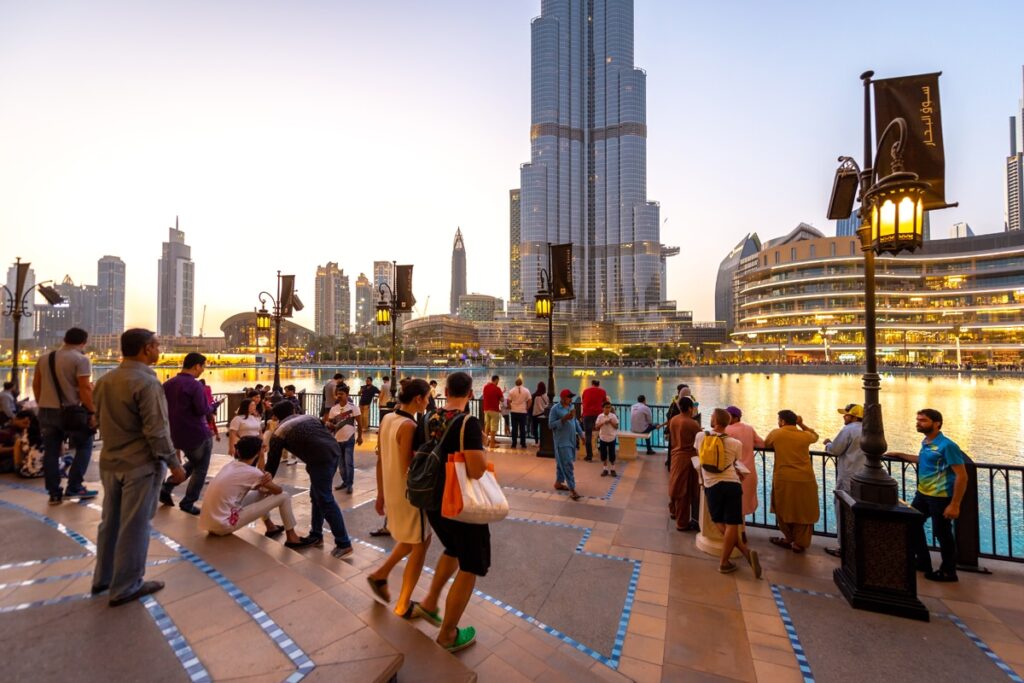
“The President of the Senate, Speaker of the House of Representatives, all state governors, all legislators, ministers, permanent secretaries and all other appointees of the government must stop patronising good health facilities outside the country, when our hospitals have been allowed to become dilapidated. They must revamp and build our hospitals.
“They should develop our health sector. They should show real exemplary leadership by patronizing our hospitals rather than using our dwindled foreign exchange to go overseas on medical vacation. I expect the Tinubu administration to be strong enough to demonstrate political will to stop medical vacations. He showed political will when he ended petrol subsidy, he should do so again to stop medical vacations by both elected and appointed public officials. If people in the private sector have the means, they can go for medical vacation at their own cost. Public officials should not do so at public expense, that is a crazy thing. What happened to the US$150 million recently returned by France? The government should invest it in fixing selected specialist and teaching hospitals in the country,” Ojo fumed.
He also advised the government to make strenuous efforts to revamp the universities by drastically cutting down on the cost of governance and using the huge sums that would be saved to radically transform public universities.
He also noted that India and China invested massively in their education sectors, which explains why their economies are performing very well.
“For instance, when the late Chinese leader, Deng Xiaoping came to power after the death of Chairman Mao Xedong, he set China on the agenda of becoming a market-driven socialist economy that encouraged private ownership of production capital and competitive enterprise to create profit and wealth while the government provided the right fiscal policies and enabling environment for businesses to thrive by adopting and adapting Western technology and corporate practices.
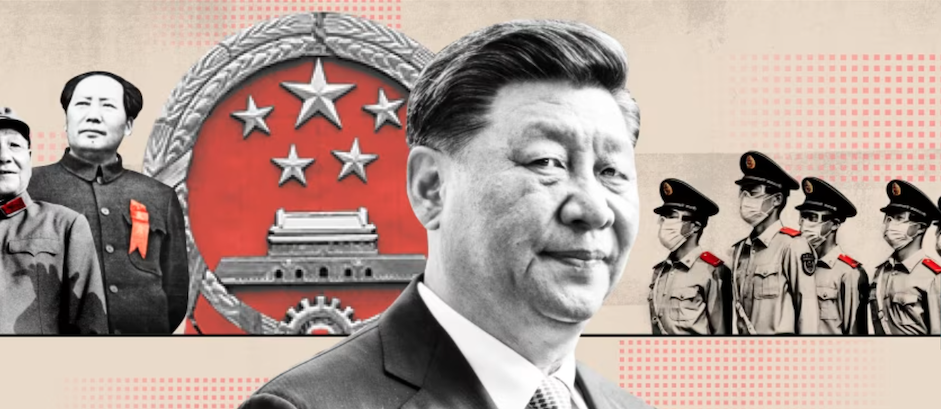
“To achieve these goals, the Chinese government under Deng Xiaoping sent hundreds of thousands of their brilliant young people to America and Europe to learn in their universities and work in their companies, and thereafter return to China, to contribute to their national economic growth. The government invested heavily in the energy sector which made electric power for massive industrial production very cheap. The combination of cheap labour, cheap energy and a huge market attracted a rush of Western investors into the Chinese manufacturing sector. Soon China satisfied its domestic market and began to compete with Western companies in American, European and other markets, to the point that they displaced many domestic manufacturers, and forced them to outsource their production processes to manufacturers in China.
“Today, the same China is challenging America on all fronts – economy, military, information technology and space exploration.
“People are using their ingenuity to create wealth in different spheres,” Ojo said, adding that “quite importantly, the government should co-operate with the Academic Staff Union of Universities (ASUU) and the Non-Academic Staff Union (NASU) to ensure that there is no strike in the universities.
“If a student enrols for a four-year programme, he should finish in four years. The duration of the programme should not be extended because of a strike. If the Tinubu administration could do that, then the government would have helped a great deal in the educational sector. The government should not allow Nigerians who are not able to put their children in private universities to suffer.”
It is heartwarming that Calabar, the Cross River State capital, is globally marketing Nigeria as Africa’s preferred carnival destination.
The beautiful and clean state capital is home to the National Publicity Secretary of the Pentecostal Fellowship of Nigeria, General Overseer and Presiding Bishop of Christian Central Chapel International, Bishop Emma Isong, who is showing equanimity over the buffeting economic storms which the country has been experiencing.
With the help of the Holy Spirit he counselled his congregation, urging them to keep their faith strong in God.
But at the same time, Bishop Isong conveyed the unmistakable wishes of the sheep he shepherds, saying: “All that we desire from the people in government is that they fulfill their electoral promises. The electorate expect them to keep the promises and pledges they made during the electioneering. These include dealing with insecurity, bringing about economic turnaround and giving value to the naira. The people also expect basic peace and stability of policies from even the Central Bank of Nigeria, so Nigerians can enjoy the dividends of democracy.”
But he has one axe to grind with the government and it concerns the manner in which conditional cash transfer initiative has been operated from the time of former President Buhari till the present time.
“Recent revelations indicated that much of the money released during the eight years of the Muhammadu Buhari administration was embezzled.
“The horrendous revelations and allegations of embezzlement of N37.1 billion made against the National Coordinator and Chief Executive Officer of the National Social Investment Programme Agency, Halima Shehu, prompted President Tinubu to direct that she should step aside, to enable proper investigation be conducted by the Economic and Financial Crimes Commission.
“The conditional cash transfer led to massive corruption and insider abuse of both the good intentions of the initiative and the process.
You and I know that financial corruption thrives in our nation because of the weak accounting system we have. Nigerian corruption is not just personal corruption. Most Nigerians are very honest people. Our problem with corruption is systemic corruption, in which case our fiscal policies are left in the hands of two or three people to decide. We expect that the Federal Government should sit up in terms of plugging the holes in our economic and fiscal policies that enable and facilitate leakages which are affecting our national currency,”Isong said.
Just like Archbishop Ojo, who he describes as his mentor, Isong conceded that the health of the people is a very important issue, which he once addressed in a paper he presented at a forum organised by the Independent Corrupt Practices Commission (ICPC).
His words: “I proposed that money recovered from past corrupt leaders should be used to build solid health facility and then named after the recovery. There is nothing wrong in naming the hospital in this manner: Abacha Loot Specialist Hospital. When we begin to build such hospitals, then our leaders will stop going abroad to access health services. They will then be forced to stay back and get treated in Nigeria. With our leaders accessing health services in the country, they will be compelled to ensure that they are up to the world standard they see in foreign hospitals. Therefore, the government should invest the US$150 million returned by France into the health sector, to upgrade and equip about 18 public secondary and tertiary hospitals in the six geopolitical zones, such that each zone will get three such facilities in three states within the zone.
“You see, part of what is causing problems in the country is that Nigerians keep asking to know what we have used the money recovered from past corrupt leaders to do, for the benefit of all. The simple thing is to invest in the health sector so that the poor masses will benefit from such investments. Nigerians will celebrate and support the government.”
Don’t politicise, regionalise education
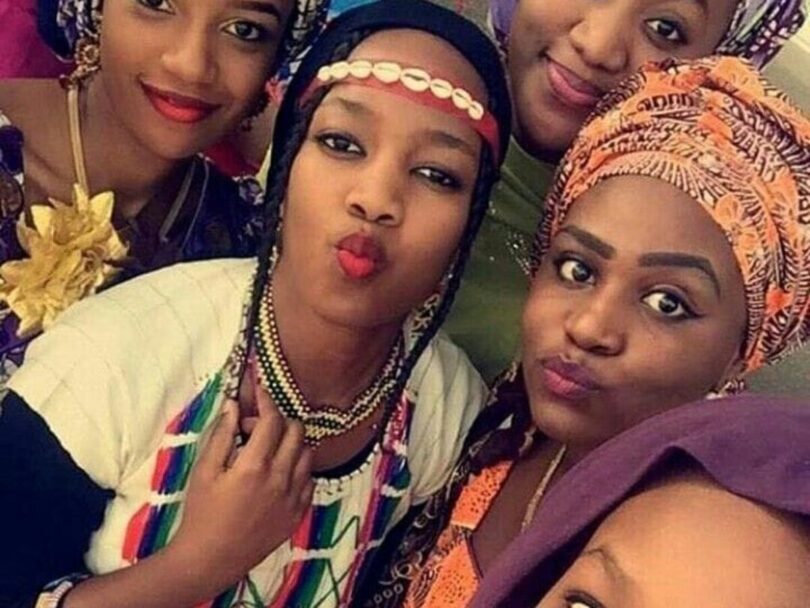
On the state of the education sector, he reminded the government of the warning which a late sage once gave to political leaders: “Was it not Chief Obafemi Awolowo who said, if you fail to educate the children of the poor and continue to educate the children of the rich because they have access to resources, one day the children of the poor will not allow the children of the rich to rest. Has that prophecy of Chief Awolowo not come to pass?
“Of course, we can turn around to do the needful so that in the next 30 years, the children of the rich will be able to sleep just because the children of the poor were given equal opportunity to go to school, be educated and be equipped with skill sets to function and contribute to national development while also enjoying a reasonably good standard of living.
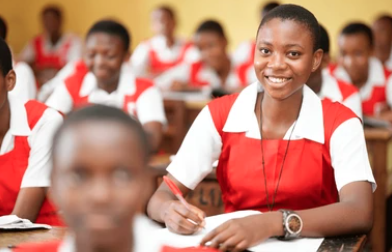
“We should not politicise education and should not even regionalise it. Today, the Western region has invested much in education. On the Lagos-Ibadan road and in that general axis, you have more than 20 private universities. Education has a way of training a criminal mind and turning it into a creative and ingenious mind. We should also make our youths recognise that education is just a process of getting a piece of paper called a certificate, rather it is intended to train the mind and enhance its God-given innate ability to come up with solutions that would be useful to society. In essence, the current thought of just going to school and then getting a job when one finishes should be erased from the mindset of the youths.
“One other key issue I want to address concerns is the Calabar Port. We know all about the congestion around the Lagos Port and all the gridlock that it causes along the transportation hub. I want to ask the Tinubu administration this simple question: isn’t it time for the Federal Government to reverse the wrong policy that created the mess, to bring Calabar Port into full use? Negative politics is affecting the economy of the country. The notion of the Export Processing Zone (EPZ) concept started in Calabar. It was the decentralisation of the EPZ policy that doomed the Calabar port. In this country, we should separate politics from the economy. What I mean is this: if we know that a certain place in the North has an advantage then a particular project should be located there and if we know that Calabar has an advantage then a suitable project should be situated there. Calabar is a littoral state. Between Nigeria, Cameroun and Equatorial Guinea, Calabar has a deep sea port. Given this incontestable fact, why can’t we allow Calabar Port to thrive, so that everything does not go to Lagos and worsen the congestion? Last time former Vice President Yemi Osinbajo tried to solve the menace of gridlock around Lagos ports. If Calabar was allowed to be functional that would have removed much of the congestion in Lagos.
“Anybody who knows the colonial history of the country would recall the important role which Calabar port played in the early political economy of the nation. Between Lagos, Port Harcourt, Calabar and the Bight of Benin (which was originally known as the Bight of Biafra), the nation ought to have developed the manifest and enormous economic benefits of the Calabar Port.
“We have a very obnoxious system in which politics is influencing economic decisions. If we can divorce the two, and separate politics from the economy, Nigeria will be a better place.”
Soon people will pay to breathe air in Nigeria

Generally, religious leaders exact a great deal of influence on members of their congregations, they are close to them and feel their pulse, empathise in their grief and share in their joy, says the General Overseer of Christ Royal Family International Church, Lagos.
“Nigerians are facing crippling hard times. Simply, the government should make life easy for the people. Food is expensive, the means of transportation is expensive, and health is expensive. The only thing that remains now is to buy air to breathe. So, we are expecting the government to recognise that the people voted them into office, they should not disappoint the masses. The government should do all it can to make the price of foodstuff come down and to make the price of petrol and diesel come down. Then there is the issue of political killings, I won’t call what is happening in Plateau State and some other parts of the country religious killings. People should repent in this country. Whoever is behind this thing and fueling the political and religious killings, it is time for such people to change their minds. I do not see a religious leader going up and down to make trouble. There are people behind all these things that are happening. They should just let the country rest. The masses see suffering. Members of our political class need to think twice. Nobody is ready for all these destruction. It is the political class that is instigating all these things under the cloak of religion. Our political class needs to rethink. They are the ones fueling these things. People use poverty to get people to rise and foment trouble. I believe the government should rise to the occasion.”
Bishop Samson and members of his congregation have been engaged in a 30-day fasting, which began on January 2, 2024, to pray for the nation.
Govt should energise creative industry

Nollywood and the other arms of the Nigeria creative industry made immense contribution to the substantial part of the country’s GDP, which in no small measure helped the nation to emerge as the largest economy in Africa, following the rebasing done during the tenure of former President Goodluck Jonathan.
That celebrated outcome led the administration to fashion out the US$200 million Nollywood Intervention Fund, intended to fast track the technical capacity of operators in the industry, make it possible for them to acquire the requisite technology to enhance their craft, acquire requisite technology, provide affordable financing to design, build and operate film villages and relevant cinematic production props.
The fund was also designed to provide some degree of financing for training people in specialised skills imperative for film production.
One expert in the creative industry is Sunny Ndubuisi Okonkwo, who is a former manager of renowned, global fashion designer, Ade Bakare, who has his two feet planted in Africa and Europe, bestriding the two fashion continents like a Colossus.
Okonkwo is a professional Data and Information Management Consultant as well as storyteller and an award winning filmmaker, who’s stellar career is punctuated with international accolades.
Notably, his films have received prestigious awards at the New York Film Awards, African Film Award London, Zuma Award, and multiple honors in Canada, South Africa, Spain, and Atlanta, USA.
These accolades underscore his global influence and the universal resonance of his work.
Nigerian ABS sought him out to share his thoughts on what the government needs to do to enable Nollywood, Nigeria’s cinematic pride to grow further this year and the subsequent years.
He said simply that the government has a pivotal interventionist role to play and proceeded to break that down into recommendations, which he also noted are not set in stone.
His words: “My recommendations are not set in stone but are aimed to guide government initiatives that will not only fortify the industry’s foundations, but also catapult it to global prominence. In respect of financial support and infrastructure development, the government’s commitment to Nollywood’s financial health should mirror the success of the “Nollywood Intervention Fund.
“Concurrently, there should be investment in state-of-the-art studios, inspired by local success stories like EbonyLife Studios, which will amplify the industry’s production capabilities.
“Secondly, there should be enhanced training and education, to strengthen ties with institutions such as the National Film Institute (NFI) and the Africa International Film Festival (AFRIFF) is vital. Increased support for training programmes ensures a continuous influx of skilled professionals, nurturing the industry’s talent pool.
“The government should encourage intellectual property protection and market access through relevant legislation. In this regard, there is need to intensify efforts to fortify copyright laws against piracy, which is crucial. Collaborations with popular distribution platforms like Netflix and iROKOtv offer gateways to expanded global market access, exemplified by the success of local filmmakers on these platforms.
“The government should provide tax incentives and collaboration with stakeholders by enhancing existing tax incentive programmes, such as the Pioneer Status Incentive (PSI). This is paramount. The Tinubu administration should encourage collaborations between the government and industry stakeholders. Partnerships between the National Film and Video Censors Board (NFVCB) and the private sector, will foster a conducive ecosystem.
“Efforts must be geared towards promotion of local content and cultural exchange by sustaining support for initiatives like the Nigerian Content Development and Monitoring Board, which is key to promoting local content. The government must mandate airtime for locally produced content to ensure consistent visibility. Active participation in cultural exchange programmes, as seen in collaborations with the British Film Institute, elevates the global profile of Nigerian films.”
Okonkwo also said that research and data collection should be intensified, stressing that increased investment in research, in collaboration with organizations like the Nigerian Film Corporation (NFC), would provide valuable insights.
Utilizing these findings to shape policies, he said, would ensure a dynamic response to the evolving needs of the industry.
“In adopting these recommendations, the government has the opportunity to not only bolster Nollywood’s standing on the global stage, but also to create an environment where creativity thrives, investments flourish, and Nigeria’s rich cultural tapestry captivates audiences worldwide,” he said.
He assured that decisive action guided by these recommendations can usher in an era where Nollywood would shine brighter than ever before.
2024 will be better year in the end
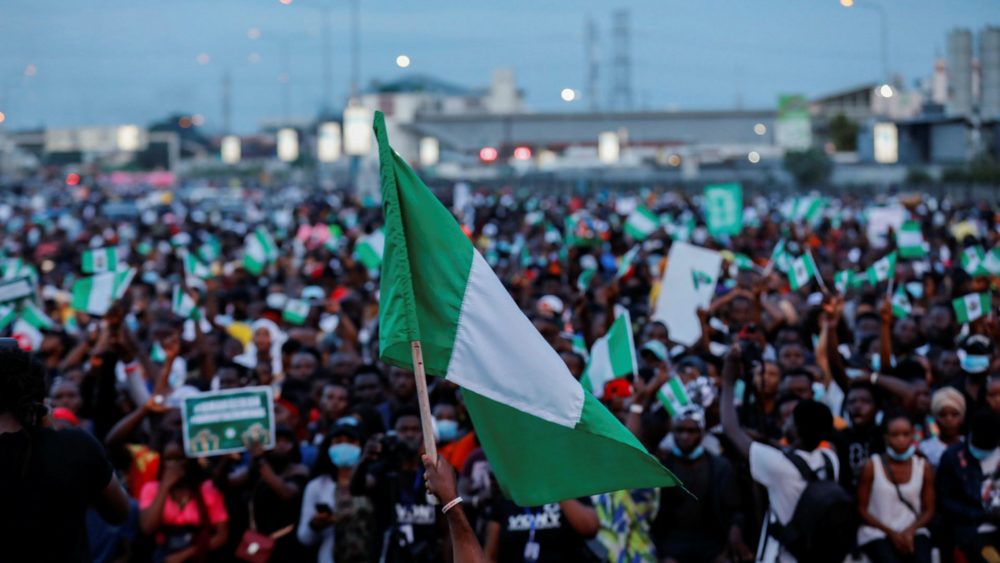
Taking a cue from the case in the Bible when Isaac took the step of faith to sow his field during a famine caused by drought, the Managing Director of Basscom Limited and Senior Pastor of Royal House of Faith Ministries, a Pentecostal church, Pastor Bassey James, told Nigerians not to lose faith in God, saying that the Almighty is not unmindful of the challenges they are going through even as they expect change from the Tinubu administration, stressing that the government would not achieve anything without the divine intervention and help of God, who is the Possessor of heaven and earth, as well as the ultimate determiner of everything that concerns human beings.
Speaking on 2024 expectations, he said: “We have earnestly prayed over the last few weeks concerning the country. We believe that Nigeria will have a better year in the years ahead. The year will be one of unexplainable power. It is going to be a year of prosperity and peace.
“We have seen a lot of turbulence and experienced hardship and pain. In this year, God will compensate us for our suffering. God will unveil His blessings on His children, especially for Nigeria, for the suffering of the past two years.
“I believe that the Bola Tinubu administration will restrategize to empower Nigerians, but we need to pray for him, and for the others who are in authority. The year will be a different year altogether.
“The government should put its house in order, and make changes in the areas that are not working properly, particularly in the area of security, and stop the fraud called Tradersmoni and other funds transfer schemes that are not truly verifiable. There must be better ways of dealing with this issue of poverty alleviation. I always recommend that the government should put the money in the banks and put in place a traceable, verifiable mechanism for ensuring that the funds get to the people for whom they were appropriated. The fraud we have been hearing about regarding the conditional cash transfer also happened during the past administration and we kicked against it. Certainly, there is a better way of handling the poverty alleviation programme.”
Tackle insecurity decisively, pursue full deregulation of downstream petroleum industry
For more than 14 years, large swaths of the northern part of the country have been in the grips of dangerous, heavily armed marauding terrorists and bandits who have been attacking communities in the Northwest, North-central and Northeast, where they indiscriminately kill, maim, rob and abduct for ransom. They also rape women and sometimes force some of them into marriage.
It initially started with the Boko Haram insurgency in Borno, Yobe and some other parts of the Northeast. After being routed and driven out of Sambisa Forest, a faction of Boko Haram swore allegiance to the Islamic State West Africa Province (ISWAP) and spread to the Northwest. Soon splinter groups of criminals discovered the “sweet juice” provided by the ransom money they were making from abductions.
They also began to demand protection money from the thousands of men engaged in the illegal mining of gold and other solid minerals in the Northwest. It was not long before the heads of the gangs decided to own the mining operations directly by carving out areas of influence.
For this reason, they began to attack and displace people in outlying, unprotected communities so that they could engage in illegal mining in such places. Sustaining the mining activities is one major reason insecurity has not abetted, but rather got worse.
Today, the earnest desire of people in the northern parts of the country is for the restoration of security and peace to encourage people to return to their communities to farm.
In separate phone interviews, the key leaders of the Arewa Think Tank, Northern Elders Forum (NEF) as well as the former Secretary General of Arewa Consultative Forum (ACF) urged President Tinubu to end insecurity without further delay.
They also tasked the president to ensure that the 2024 budget is fully implemented for the socio-economic upliftment of the citizenry.
Convener of the Arewa Think Tank, Muhammad Alhaji Yakubu said: “There are high expectations from this government. The number one thing that Nigerians want from President Tinubu is tackling insecurity. Number two is to implement the 2024 budget passed by the National Assembly to the letter. Once he can give Nigerians security and implement the budget, there is nothing else Nigerians want from him. Most of the challenges he is battling with now are not his making. He inherited them.
“The President’s New Year address was very inspiring. All we want him to do now is to walk the talk of most of the things he has inspired Nigerians to do. Let him live by example and that is all that is required now.
“Nigerians also expect Mr President to fight corruption to a standstill considering the kind of report coming from the Central Bank of Nigeria (CBN). Nigerians expect that President Tinubu should go after those who stole our common patrimony in the last eight years and collect back our common patrimony or else Nigerians will not take it easy with the President.
At the Arewa Think Tank, we believe that Mr. President has started very well in the last seven months. We just pray that within one and a half years, he will improve because we are giving him the benefit of the doubt. He has started very well. If he can improve on it, fine. So, that we will be the ones to assess his scorecard at the end of the tunnel. We are hopeful that this year will bring a lot of goodies.
Similarly, the Northern Elders Forum (NEF) implored President Tinubu to decisively tackle insecurity and pursue economic stability.
Speaking on behalf of the Forum, the Director (Publicity and Advocacy), Abdul-Azeez Suleiman, said that Nigerians expect the government to deal with the infrastructure deficits that are evident all over the country in terms of failed and almost impassable roads, dilapidated healthcare facilities that are driving doctors, nurses and other healthcare professionals overseas. Equally important, Sulaimon noted, the vital issue of education reform, which he urged the government to prioritize.
His words: “Nigerians have high expectations from Tinubu, and primarily, their hopes centre around improved and guaranteed security for all. It is no longer a secret that Nigeria is facing numerous security challenges, with the rise of insurgency, banditry, and other criminal activities plaguing various regions of the country.

“Nigerians expect Tinubu to tackle the issue of insecurity decisively. This includes implementing comprehensive strategies to curtail the activities of insurgent groups, bandits, and kidnappers. The government must provide adequate support to security agencies, equip them with modern technology, and enhance intelligence gathering. The forum also demands there should be a focus on community policing, providing communities with the necessary tools to protect themselves and report suspicious activities promptly. It wants Tinubu’s economic policies to be directed towards prioritising diversification, reducing dependence on oil, and promoting sectors such as agriculture, technology, and manufacturing. Furthermore, he must outline measures to attract both foreign and domestic investments, providing opportunities for job creation and sustainable development. NEF also expects a renewed resolve in the fight against corruption.”
In the opinion of the former Secretary General of Arewa Consultative Forum (ACF), Mr Anthony Sani, “Nigerians expect President Bola Tinubu to prioritize his programmes in favour of taming insecurity to create a conducive environment for socioeconomic development that includes farming. The regime can bring down prices and inflation by deregulation of the downstream sector. Full deregulation is the only way fuel subsidy removal would be complete, considering that we still import fuel with dollars and the naira is in a state of flux. If Dangote Refinery becomes operational and the downstream is fully deregulated, I believe prices and inflation will go down through some form of fair competition.”

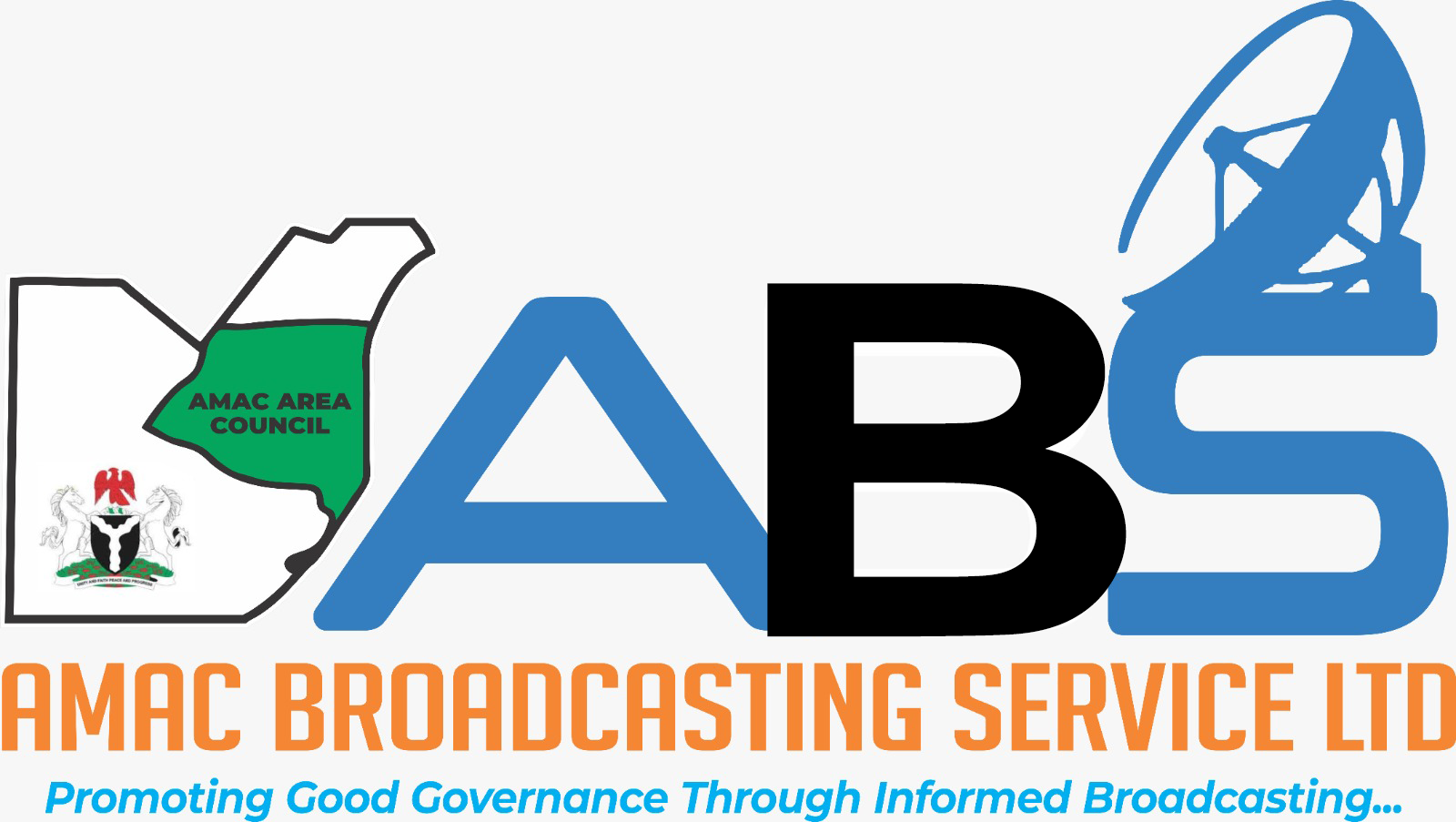


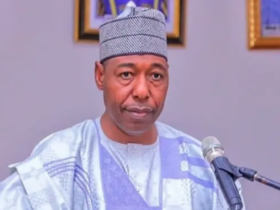
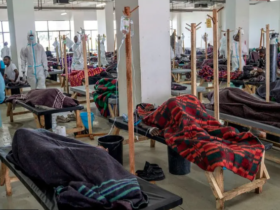
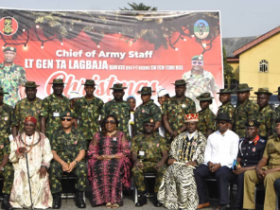

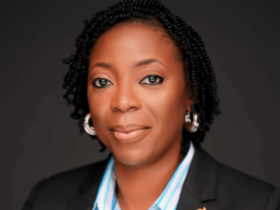

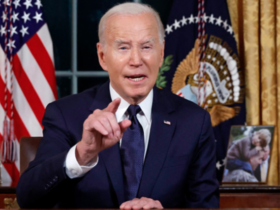
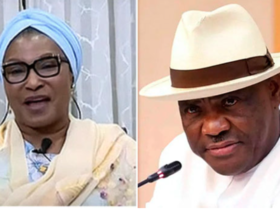
Leave a Reply